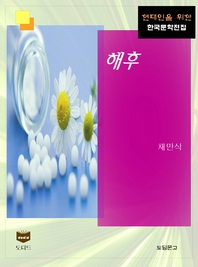책소개
IN 1826 a little book appeared in London which immediately attracted attention. It was neatly printed, in splendid, large type, making it by far the most attractive output of the Jewish press of that period. Intrinsically, too, it represented the flowering of Hebrew literature in England. Indeed, no other English work on a Jewish subject, with the possible exception of Emanuel Deutsch's memorable essay on "The Talmud"?published ten decades later, in The Quarterly Review?was so favorably received.
Its elevated tone, simple dignity, and choice phrasing, no less than its modest learning, combined to make it the most popular repertory of Jewish lore and legend for more than a generation, and its unique value as a source-book of Rabbinic tradition, to Jew as well as Gentile, has not been impaired by the publication of a host of similar works, a few of which, as the anthologies of Fuerstenthal, Levi, Polano, and S. Baring-Gould, are still highly prized by students.
저자소개
Sister Projects.sister projects: Wikipedia article.
HURWITZ, HYMAN (1770?1844), professor of Hebrew in the university of London, born at Posen in Poland in 1770, was a learned Jew who came to England about 1800 and conducted a private academy for Jews at Highgate, where he established a close friendship with Coleridge and corresponded with him. In 1828 he was elected professor of the Hebrew language and literature at University College, London. His inaugural lecture was published. He died on 18 July 1844. He was author of:
1.'Vindiciae Hebraicae, being a Defence of the Hebrew Scriptures as a Vehicle of Revealed Religion, in Refutation of J. Bellamy,' 1820.
2.'Hebrew Tales from the Writings of the Hebrew Sages' 1826.
3.'Elements of the Hebrew Language,' 1829; 4th edition, 1848.
4.'The Etymology and Syntax of the Hebrew Language,' 1831; a first part on orthography appeared in 1807.
5.'A Grammar of the Hebrew Language,' 2 parts; 2nd edition, enlarged, 1835.
Hurwitz also wrote many Hebrew hymns, odes, elegies, and dirges. A Hebrew dirge, 'chaunted in the Great Synagogue, Aldgate, on the day of the Funeral of Princess Charlotte' was published in 1817, with an English translation in verse by Coleridge. 'The Knell,' another Hebrew elegy by Hurwitz on George III, appeared in an English translation by W. Smith at Thurso in 1827.






